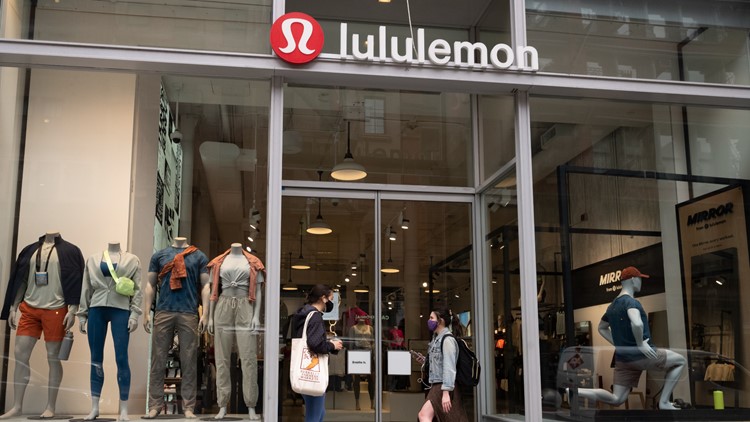Lululemon Athletica, the renowned athletic apparel company, has filed a lawsuit against retail giant Costco, accusing the company of selling imitation versions of its high-end clothing. The legal action, filed in a California court, specifically highlights the sale of products that closely resemble Lululemon’s popular items, such as the Scuba hoodie. While Lululemon’s version retails for over $100, Costco offers a similar hoodie online for approximately $8.
The lawsuit underscores the growing tension between premium brands and discount retailers, as the latter increasingly offer budget-friendly alternatives that mimic high-end products. This case could set a significant precedent in the fashion industry, where the line between inspiration and imitation is often blurred.
The Battle Over Brand Identity
Lululemon’s lawsuit is not just about protecting its designs but also about safeguarding its brand identity. The company has built a reputation for offering high-quality, stylish athletic wear, and it argues that Costco’s alleged ‘dupes’ could potentially damage its brand image and customer trust.
According to the lawsuit, Lululemon claims that Costco’s actions are “willful and intentional,” and it seeks damages as well as a permanent injunction to stop the sale of these imitation products. The legal action highlights the challenges faced by premium brands in maintaining their market position in a competitive retail landscape.
Historical Context and Industry Impact
This is not the first time a high-end brand has taken legal action against a retailer for selling lookalike products. In recent years, several luxury brands have pursued similar lawsuits to protect their intellectual property. For example, in 2018, Burberry sued Target over the sale of products featuring its iconic check pattern.
Industry experts note that such legal battles are becoming more common as the fast fashion industry continues to grow. The ability of retailers like Costco to offer similar styles at a fraction of the price poses a significant threat to premium brands, which rely on exclusivity and brand prestige.
Expert Opinions
Legal experts suggest that Lululemon’s case against Costco could hinge on proving consumer confusion and the impact on its brand. “The key issue in these cases is whether the average consumer is likely to be confused about the source of the product,” said Jane Doe, a trademark attorney specializing in fashion law.
“If Lululemon can demonstrate that Costco’s products are causing confusion or diluting its brand, it stands a good chance of winning the case,” Doe added.
Looking Ahead: Implications for Retailers and Consumers
The outcome of this lawsuit could have far-reaching implications for both retailers and consumers. For retailers, a ruling in Lululemon’s favor might lead to stricter scrutiny of product designs and sourcing practices. It could also encourage other premium brands to take similar legal actions to protect their intellectual property.
For consumers, this case raises questions about the accessibility and affordability of fashion. While ‘dupes’ offer a way for consumers to access trendy styles without the high price tag, they also challenge the sustainability and ethical considerations of the fashion industry.
As the case unfolds, industry watchers will be keenly observing how the court navigates the complexities of intellectual property law in the fashion sector. The decision could influence future legal battles and shape the strategies of both high-end brands and discount retailers.
Meanwhile, Lululemon continues to emphasize its commitment to innovation and quality, asserting that these values are at the core of its brand. The company hopes to not only protect its products but also reinforce its position as a leader in the athletic apparel market.
The lawsuit against Costco is a pivotal moment for Lululemon, as it seeks to assert its rights and maintain its brand integrity in an ever-evolving retail environment.
About The Author
 Poland Enhances Border Controls Amid Rising Tensions Over Irregular Crossings
Poland Enhances Border Controls Amid Rising Tensions Over Irregular Crossings Gunfire Near NYC Pride Injures Two Teens, Raises Safety Concerns
Gunfire Near NYC Pride Injures Two Teens, Raises Safety Concerns Elon Musk and Donald Trump Clash Over Controversial Tax Bill
Elon Musk and Donald Trump Clash Over Controversial Tax Bill Israeli Hostage Tortured to Death by Hamas Over Tattoo Misunderstanding
Israeli Hostage Tortured to Death by Hamas Over Tattoo Misunderstanding Tragic End for Backpacker Juliana Marins: A Journey of Courage and Heartbreak
Tragic End for Backpacker Juliana Marins: A Journey of Courage and Heartbreak